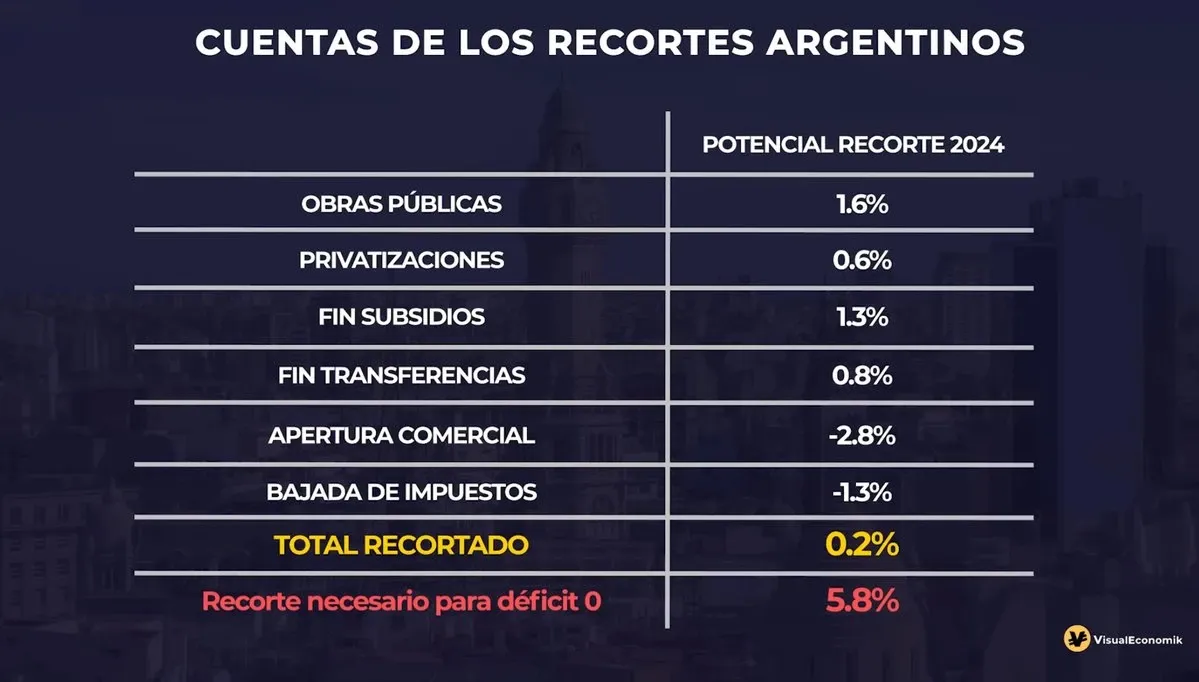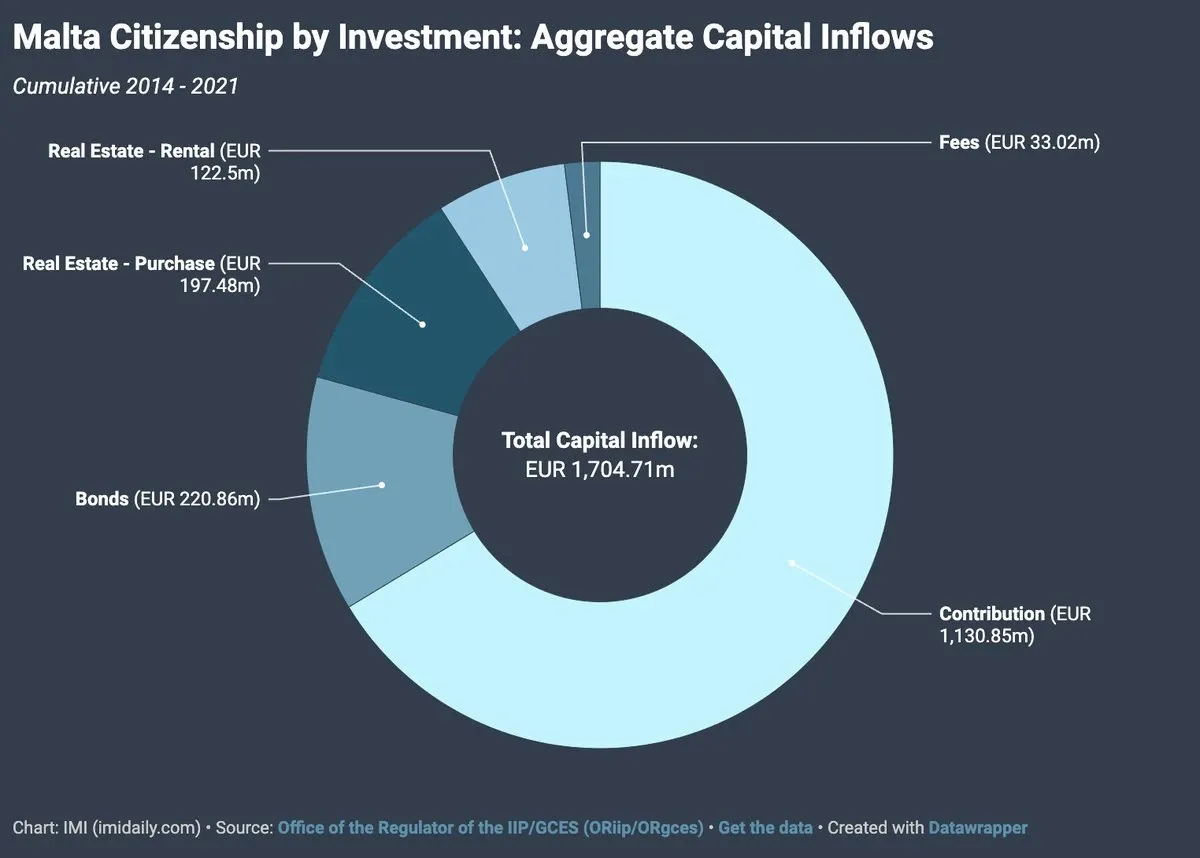After winning the presidential elections earlier this month, Javier Milei will have a hard time turning the economy around. Argentina is on the verge of an economic disaster. More than 40% of the population is in poverty.
Inflation is the worst in 30 years. But there is optimism in the air for the Argentinian people. You can feel a renewed sense of national identity and pride all around Buenos Aires.
The main issue for Argentina is the reckless public expenditure needed to finance an enormous government that is a giant with feet of clay. Uncontrolled expenditure has created a massive deficit. Central bank's debt with private banks, businesses, and the IMF is bound to become unpayable.
Like Milei has said multiple times, Argentina needs to achieve fiscal balance. And it needs to do it fast.

Spending less means less debt. Less debt means printing fewer Argentine pesos to pay the interest. And less printing means controlling inflation, which will stabilize the economy.
But to spend less, Argentina will need aggressive spending cuts. More specifically, by 2024, Argentina needs to reduce public expenditure by ~5.8% of its GDP (around $28B). It will be very challenging to cut down budgets like healthcare, education, pensions, or interests from debt.
Even reducing budgets that are relatively easy to reduce, like public infrastructure, public companies, subsidies, or discretionary transferences – will most likely not be enough.

This is where a Citizenship by Investment program comes into play. Citizenship is an asset, and the Argentine passport is world-class: 18th on the Global Passport Ranking in 2023, with residency rights in all of South America and MERCOSUR (Argentina, Brazil, Paraguay, and Uruguay) and visa-free travel to 170 countries – making Argentine citizenship extremely attractive to foreign investors looking for dual nationality.
Unfortunately, the passport does miss visa-free access to a few key countries, including the United States, Australia, and Canada.
For decades, investor visas have allowed countries to attract Foreign Direct Investment without debt. Citizenship by Investment helps attract capital without debt. Instead of economic liabilities, Argentina would get talented and wealthy individuals eager to become Argentine citizens.
For small island countries in the Caribbean, like Grenada, CBI programs already represent ~50% of their GDP, or around $500M every year. Malta made almost $2B last year with their naturalization program, bringing the country a minimum investment of ~$750,000 per applicant.

While the Argentine passport is not quite as strong as the Maltese passport, with Argentina not being an EU member, the Argentinian passport's value in terms of visa-free access is almost on par with Malta, Spain, or Portugal. This means that Argentina could propose a large minimum investment in exchange for Citizenship, much higher than that of Caribbean Citizenship by Investment programs, on par with the European Golden Visas and even higher than Türkiye’s minimum investment of USD $400k for the real estate route.
This makes the Argentina passport absolutely world-class.
The path to obtaining Argentine nationality right now is fairly straightforward if you're willing to physically move to the Latin American country. First, you'd get a temporary residence permit through the Rentista visa, which requires you to show a source of income from outside the country. You will then have to spend significant time on the ground (2 years), which will pull you in as an Argentinian tax resident. After two years of residence, you could skip the permanent residency visa and go through the application process to apply for Argentine citizenship.
An business investment program or private investment in financial institutions and funds, would allow talented and wealthy entrepreneurs and their family members to invest in the Argentine Republic, becoming citizens in return without the real estate investment negative externalities or the burden of minimum stay requirements and getting sucked into becoming a tax resident – requirements that usually scare away wealthy and talented individuals.
FINANCING ARGENTINA SELLING PASSPORTS@JMilei will have a hard time turning the economy around.
— Alex Recouso (@alexrecouso) November 26, 2023
Argentina is on the verge of an economic disaster.
More than 40% of the population is in poverty.
Inflation is the worst in 30 years.
The main issue for Argentina is the reckless… pic.twitter.com/9lxLdPUvfe
Argentinian citizenship is a very attractive option for dual citizenship – and it has a clear positioning in the investment migration market if the program offers a swift processing time.
Of course, this new capital alone won't resolve Argentina's fiscal balance. But it's a great way to create a new source of income and attract foreign nationals to an amazing country like Argentina. 🇦🇷
Viva la libertad!




